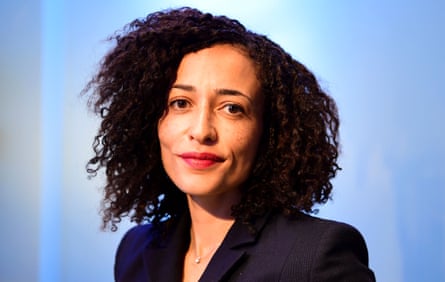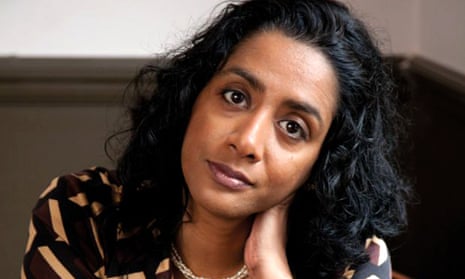The chair of the judges for the inaugural Jhalak prize, the author Sunny Singh, has branded British publishers “pathetic” after the award created to recognise black, Asian and minority ethnic (BAME) writers received only 51 submissions so far.
The £1,000 prize was set up to recognise “[authors] who feel that their work is often marginalised unless it fulfils a romantic fetishisation of their cultural heritage”. Despite the deliberately broad entry requirements – it is open to BAME writers based in the UK working in any genre, regardless of whether they are self-published or with a publisher – the award has received startlingly few entries, with only two weeks to go until submissions close.
“It is not that we won’t be able to award a book that is deserving, but that there are obviously not enough books being published by BAME authors,” said Singh.
The Jhalak prize was announced in February after the 2015 Writing the Future report found that the best chance of publication for writers of colour was to write literary fiction conforming to a stereotypical view of their communities, addressing topics such as “racism, colonialism or postcolonialism, as if these were the primary concerns of all BAME people”. At the time, the co-founder of the prize, the author Nikesh Shukla, said that “a perfect loop-de-loop of blame” existed in the industry, where publishers blamed agents for the lack of diversity, while agents blamed a lack of available talent and writers blamed publishers.
Singh expects they will receive one or two dozen more by the time submissions close at the end of November, but said she is disappointed with the overall figure so far, and that the bulk of entries had come from independent and small presses. She estimated that 70% of submissions had come from small publishers such as Profile and Hope Road.
“This suggests there is a serious problem in the bigger publishers,” she said. “We’ve got loads of stuff from tiny publishers, really tiny ones. But where are the big ones? The fact is that they’re not publishing.”
She called the lack of debut and up-and-coming BAME authors “pathetic, truly pathetic” and said the fact that publishers were submitting big names for the prize was a sign that the attention of industry was too focused on a small number of high-profile writers. “The publisher Hamish Hamilton submitted Zadie Smith’s latest book,” she said. “You really need to send me Zadie Smith for a tiny prize in its first year? That’s pathetic.”
Singh said she and her fellow judges had been personally contacting publishers to remind them that submissions remain open. “People know it exists, so it is not that they aren’t aware.”
In November, the Bookseller magazine found that an author was more likely to reach the bestseller list if their name was David than if they were from an ethnic minority. The analysis found a “shockingly low” number of books by British BAME authors in the top 500 titles of the year to date.

After the 2015 Writing the Future report found that 74% of publishers employed by large companies described the industry as only “a little diverse” or “not diverse at all”, the UK publishing industry has made moves to address the lack of diversity. Changes have been made at the Big Four publishers in the last year: Penguin Random House launched a series of writing workshops around the UK called Write Now and removed the requirement that would-be employees needed a university degree, and Hachette announced it would begin paying interns and also offer two 12-month internships for BAME applicants. HarperCollins imprint 4th Estate, meanwhile, introduced a short story prize for BAME writers, in association with the Guardian.
David Roth-Ey, executive publisher of 4th Estate, said the company was “committed to expanding our list, as well as improving the diversity of our workforce, but there’s clearly more work to be done ... In my view, there is a new urgency among publishers to find and publish British BAME authors, and I’m pleased that initiatives such as the Jhalak prize will shine a light on their work.”
According to Danuta Kean, who edited the Writing the Future report, the lack of submissions for the Jhalak prize reveals that publishers still have work ahead. “It also reflects a failure at some publishers to support their BAME authors by submitting them to the kind of prizes that will put them on the map and help establish their careers,” Kean said.
She added that the big publishers do have many more debuts from BAME authors lined up for 2017. “I just hope they get the marketing spend [and that] this increase is about real commitment to diversity in the literary world and not just gesture politics,” she said.
“The authors are out there. It is the fault of the publishers,” Singh said. “We know the problem and we know the solution. We just need the publishers to act. This is not a political or sociological issue – this is a moral issue. Publishers need to put their money where their mouths are.”

Comments (…)
Sign in or create your Guardian account to join the discussion